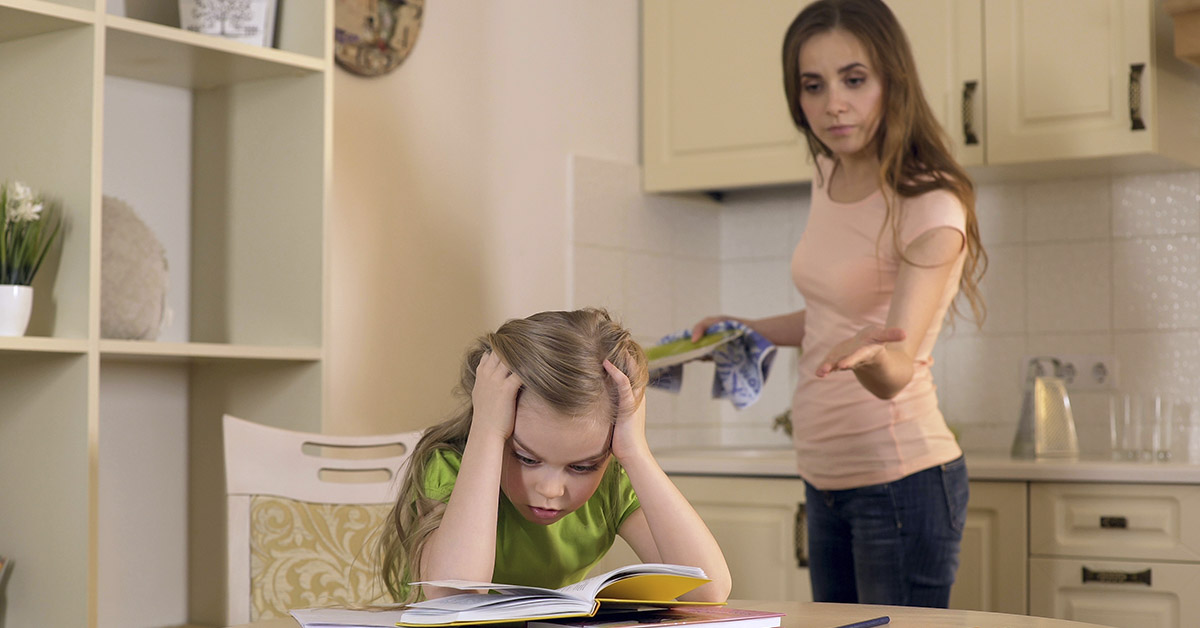Life is a never-ending journey of self-improvement, and it’s important to hold yourself to high standards. Additionally, parents play an integral role in how we view ourselves and our expectations. As a result, self-worth and mental well-being can be damaged if you’ve been brought up by an overly critical parent. According to licensed psychologist Seth J. Gillihan Ph.D., there are some obvious signs you grew up in a toxic and unsupportive environment and some things that can be done to improve self-worth.
Signs You Had a Critical Parent
1. Trusting Yourself and Being Closed to New Challenges or Experiences

First and foremost, you struggle with trusting yourself. We all have a “gut feeling,” but when constantly facing a critical parent, you’re left with the message that everything you do, think, and feel is wrong. Therefore, you’ll constantly doubt your own instincts. If you had a critical parent growing up, you’re more likely to be closed off to new challenges or experiences and may prefer to avoid certain tasks or risks, to ensure that you avoid failure.
Read: 5 Signs You Grew Up in a Toxic Family and Might Need Some Time Apart From Them
2. Judging Yourself or Others and Listening to Your Inner Critic

Similarly, you may find yourself being overly judgmental of others or yourself. Although it’s not unusual for people to strive to be their best, we’re all human and make mistakes. However, when people don’t struggle with confidence or their own self-worth, they’re often less judgmental, even becoming indifferent to the choices of other people. The same applies to your own inner critic. If you had an overly critical parent growing up, you may find that you often tear yourself down. For example, obsessively replaying this morning’s meeting to pick apart your presentation and wished you would’ve spoken more eloquently.
3. Perfectionism and Bouncing Back from Your Own Mistakes

Another sign of having a critical parent is that you require perfection. It’s okay to be competitive or strive for success. However, when you’ve done your best and then lash out because you didn’t meet your own unrealistic expectations, your self-image becomes warped. You may also be more inclined to feel the need to prove yourself, going above and beyond to try to prove your worth to yourself or others.
Read: 15 People Who Grew Up Poor Share the Things They Always Considered to Be a Luxury
4. Self-Doubt and Completing Tasks, and Believing People Like You

Along with self-doubt, you may find it difficult to accomplish minor tasks and even socialize with the people you love. For example, it may be hard to choose a birthday present for someone else, call the water company to ask about a misprint in your monthly bill, or connect with people you care about for fear that they may not actually like you or maybe judging you.
Other Signs of a Critical Parent
5. Over Apologizing, always on the Defense

Another sign of a critical parent and probably one of the most common signs, over apologizing. Constantly feeling the need to apologize for everything you do or say. It’s important to take responsibility and learn from your mistakes, but not every action has to be deemed a mistake. For example, you may apologize for bumping into someone in a crowded store, meanwhile, you’ve just crossed paths at the end of an aisle going the opposite direction.
Read: If You Relate to These 8 Things You Were Raised by an Emotionally Abusive Mother
It’s not unusual for someone with a critical parent to be accustomed to always being defensive, expecting to be under attack. This can lead to taking “things the wrong way” or over-explaining why you’re doing things that way.
6. Over Analyzing and Deflecting Compliments

A critical parent may also instill in their children a need to overanalyze everything, leading to self-doubt or questioning the motives of others. You may find yourself wondering if someone who complimented you was being sincere. Oftentimes, even choose to deflect the compliment with self-criticism. You may read into what others say, and whether or not they meant something else instead.
7. Depression and Competitiveness

Although depression isn’t uncommon in general, it’s more prominent in those who grew up with a critical parent. Feeling inadequate, like a failure, or unlikable often leads to beating yourself up. Mistrust or an overwhelming sense of competition also arises when you have a critical parent, causing strained sibling relationships.
Read: 10 Emotional Wounds Daughters with Unloving Mothers Carry into Adulthood
We All Differ

It’s important to note that we are all different. Therefore, we develop different coping mechanisms and habits based on not just our environment but also our temperament as well. As a result, this list can apply to both those with and without exposure to a critical parent. However, learning some coping mechanisms can be helpful for both sets of people.
Healing from a Critical Parent

Awareness is actually one of the first mechanisms of addressing any problem, both psychological and otherwise. When we become aware of certain patterns, we start to learn more about ourselves, where our habits came from, and how we can start to change them into healthier habits.
A good way to connect with your mind and body is to focus on your breath. Not necessarily changing it but noting how your body rises and falls. While this doesn’t actually undo previous behaviors, it does help shift your awareness inward. Thereby allowing you to dive further into your inner thoughts, fears, hopes and hurt.
Read: This Is Why It’s Completely Fine To Cut Off Toxic Family Members From Your Life
The next coping tool is imagination. Close your eyes and pretend that you see yourself the way you’ve always wanted to. You can also look at yourself in the mirror and tell yourself positive affirmations such as being smart enough. This will reprogram your brain to believe positive things about yourself.
Moreover, try doing something kind for yourself and others. Building acts of kindness will help fill your heart with love. Lastly, you can journal. Take note of your triggers and assess whether your reactions are from a place of love or hurt from an overly critical parent.
Our relationships with our parents can be complex, particularly so if we have an overly critical parent. Therefore, it’s important to show ourselves and others as much love and kindness as we would want someone to show us.
Keep Reading: Kids who do these things have ‘highly sensitive’ brains—experts say it’s an ‘advantage.’

